Photos: Decapitated Romans Found in Ancient Cemetery
Cemetery excavation
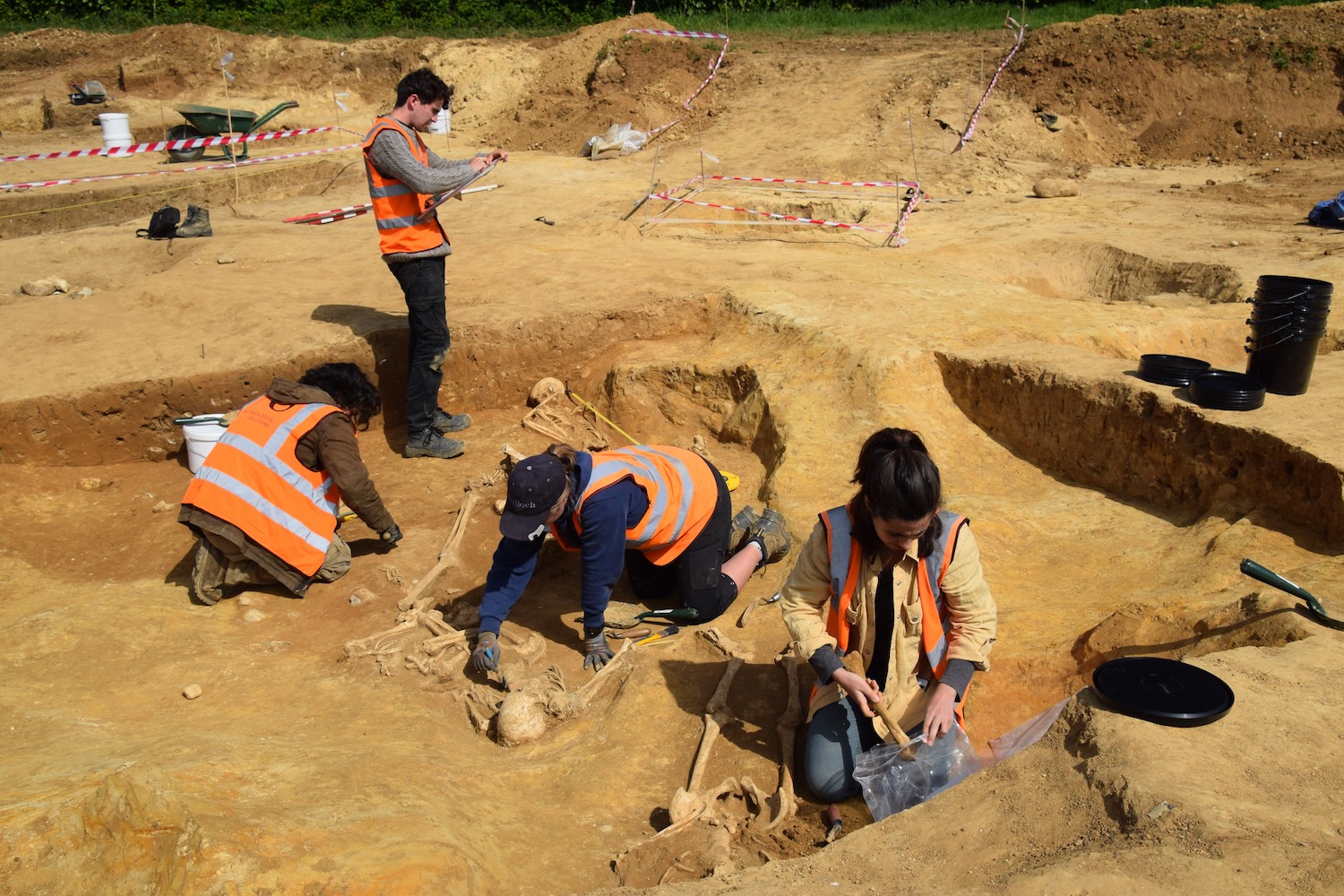
Archaeologists surveyed an area in Suffolk, England ahead of the construction of a residential development. They were surprised to find a Roman cemetery with at least 52 burials that dated to the fourth century A.D.
Here, archaeologists are seen cleaning and recording the Roman burials. [Read the full story about the Roman cemetery]
Decapitated heads
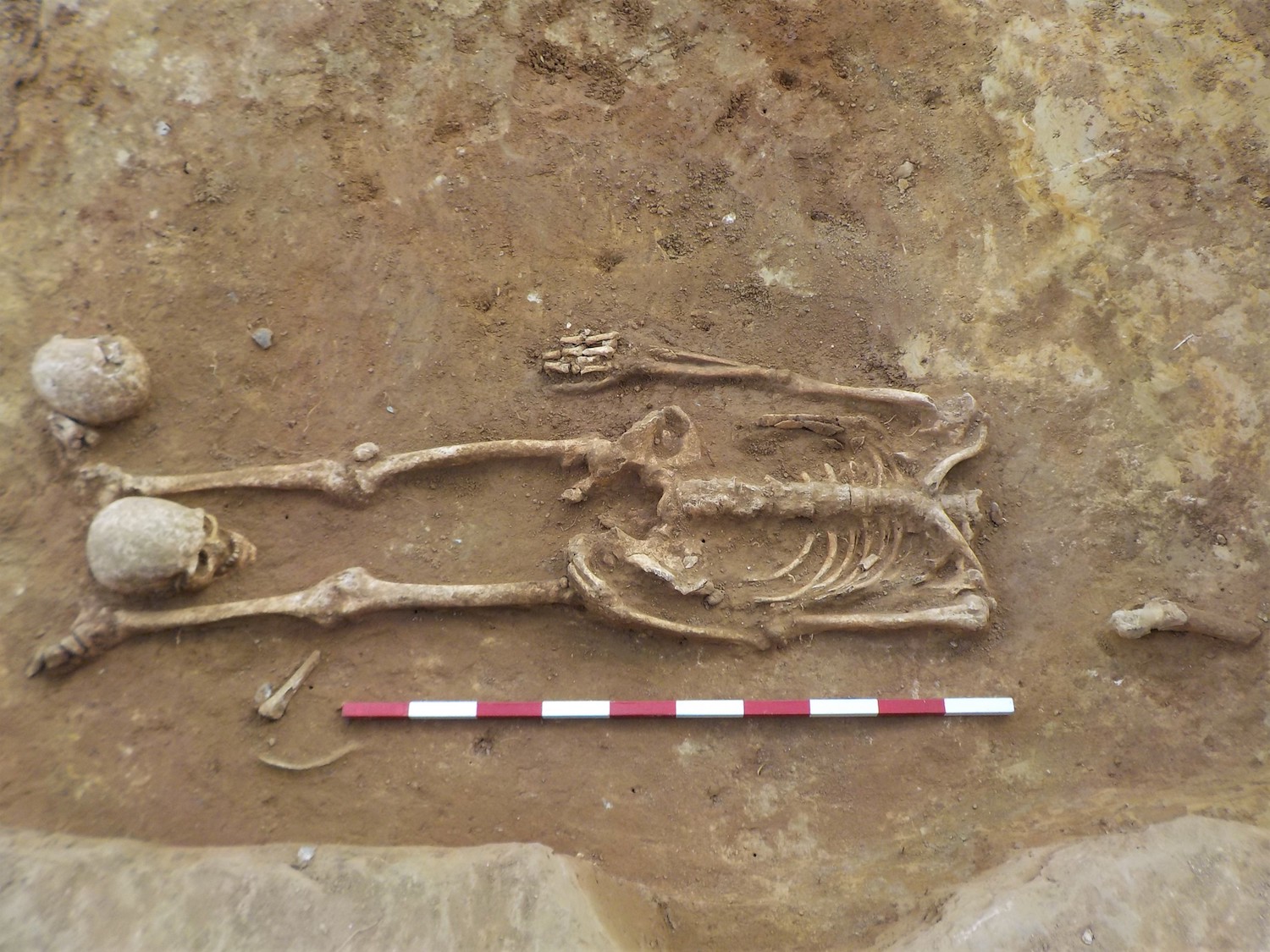
Of the 52 skeletons, 17 had been decapitated just after they died.
"The incisions through the neck were post-mortem and were neatly placed just behind the jaw," Andy Peachey, an archaeologist with Archaeological Solutions, which excavated the site, told Live Science. "An execution would cut lower through the neck and with violent force, and this is not present anywhere."
This particular grave has a decapitated skeleton and the skull of a second decapitation, possibly from a neighboring grave.
Still intact
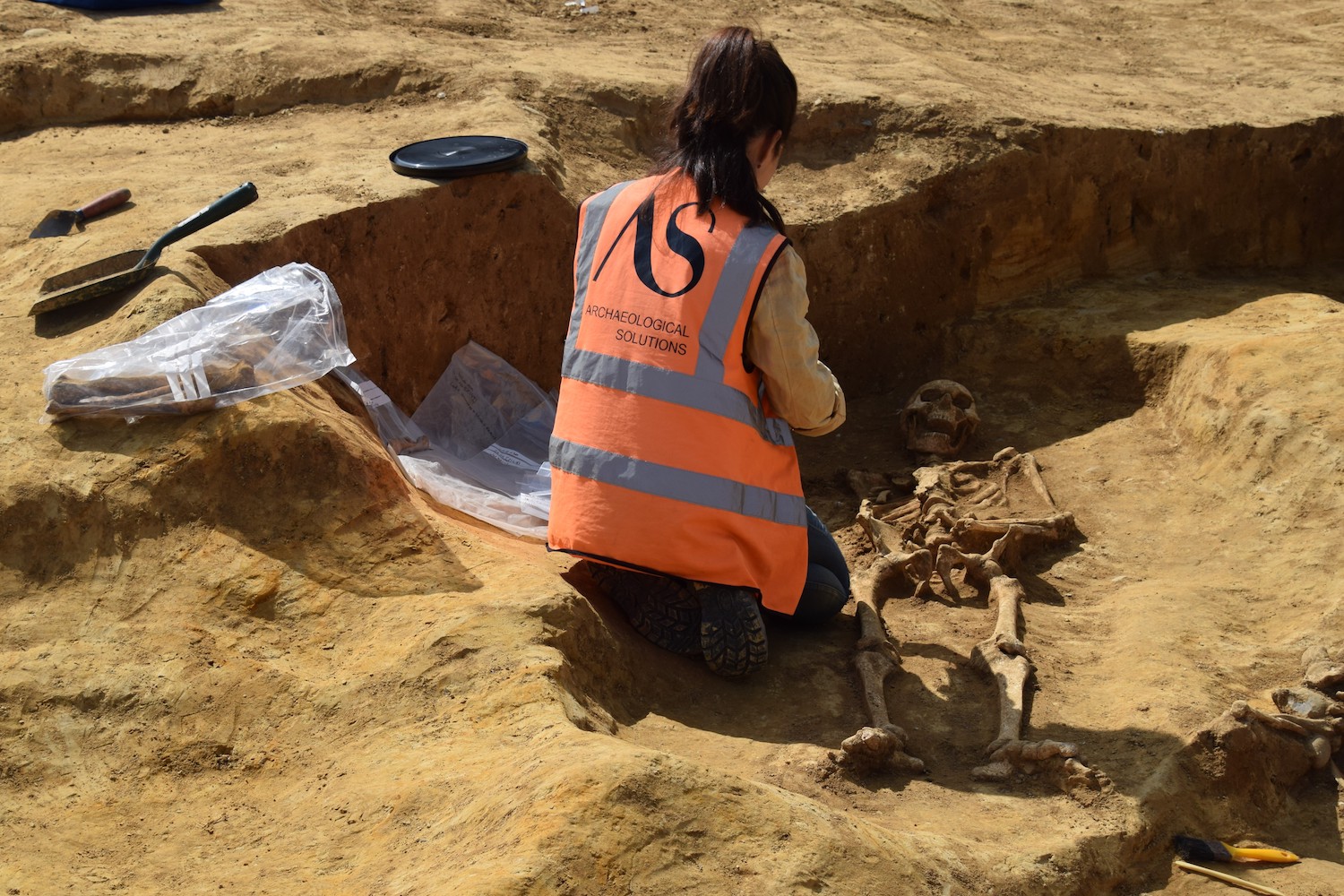
Not all of the skeletons were decapitated. Here, an archaeologist prepares to lift and pack human remains.
Bone comb
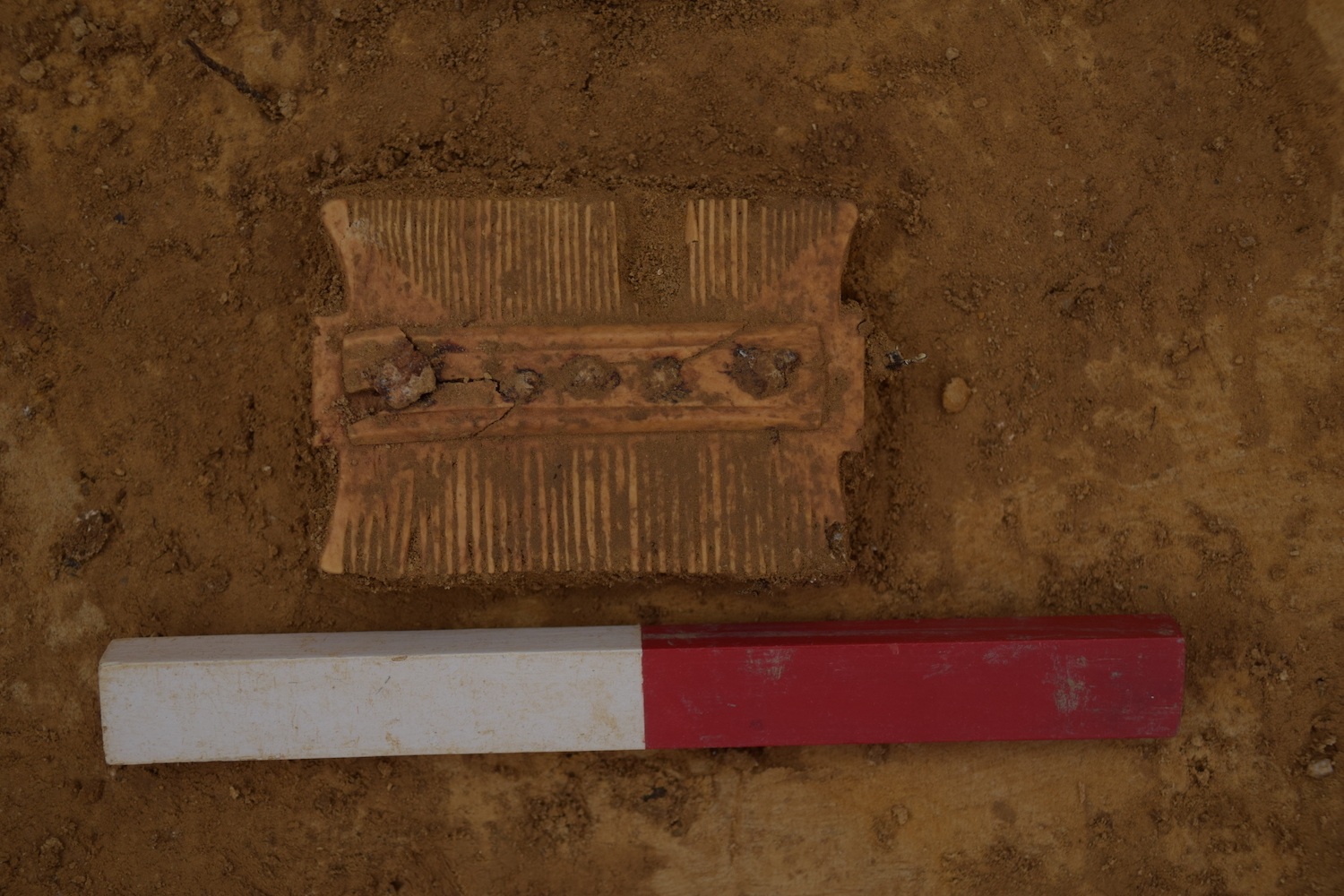
Except for two graves, none of the skeletons were buried with any grave goods. These graves contained decorative Roman bone combs, and likely belonged to women.
Get the world’s most fascinating discoveries delivered straight to your inbox.
Length and width
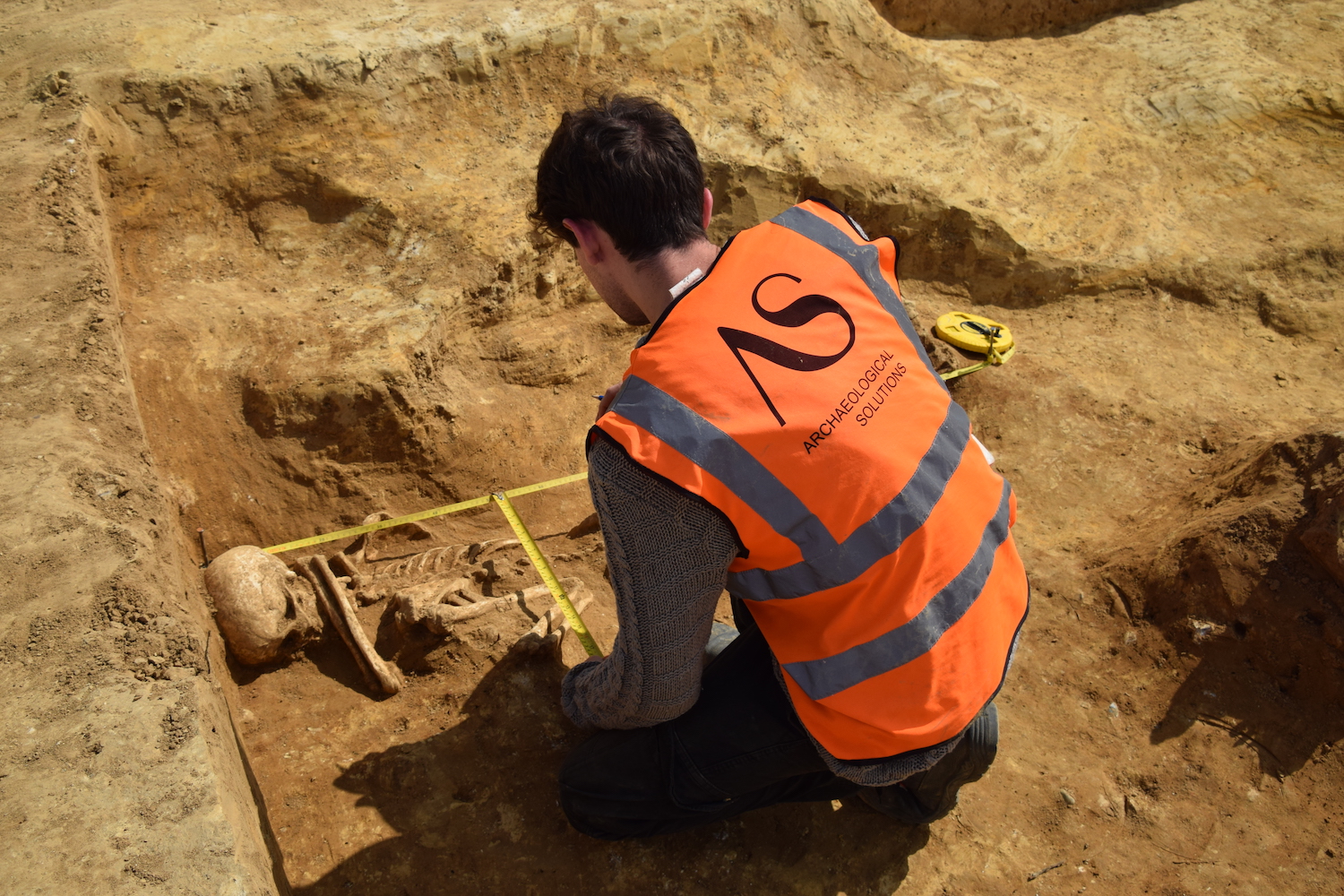
An archaeologist measures and records the dimensions of one of the skeletons. The skeletons in the cemetery were an even mix of middle-aged men and women, with a couple of younger individuals who died when they were about 10 years old.
Grave artifact
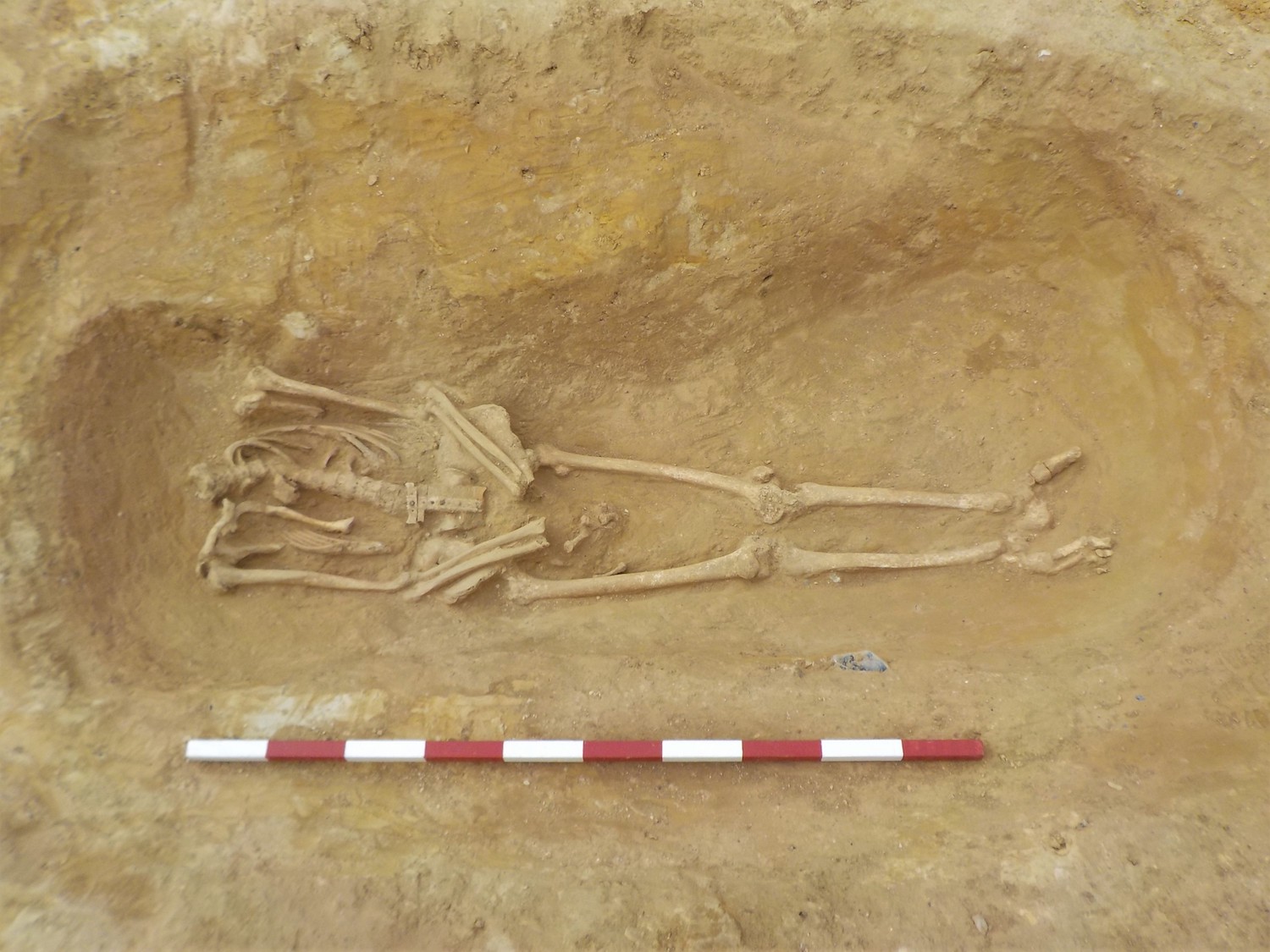
This decapitated Roman body has a bone comb on its pelvis.
Bent knee
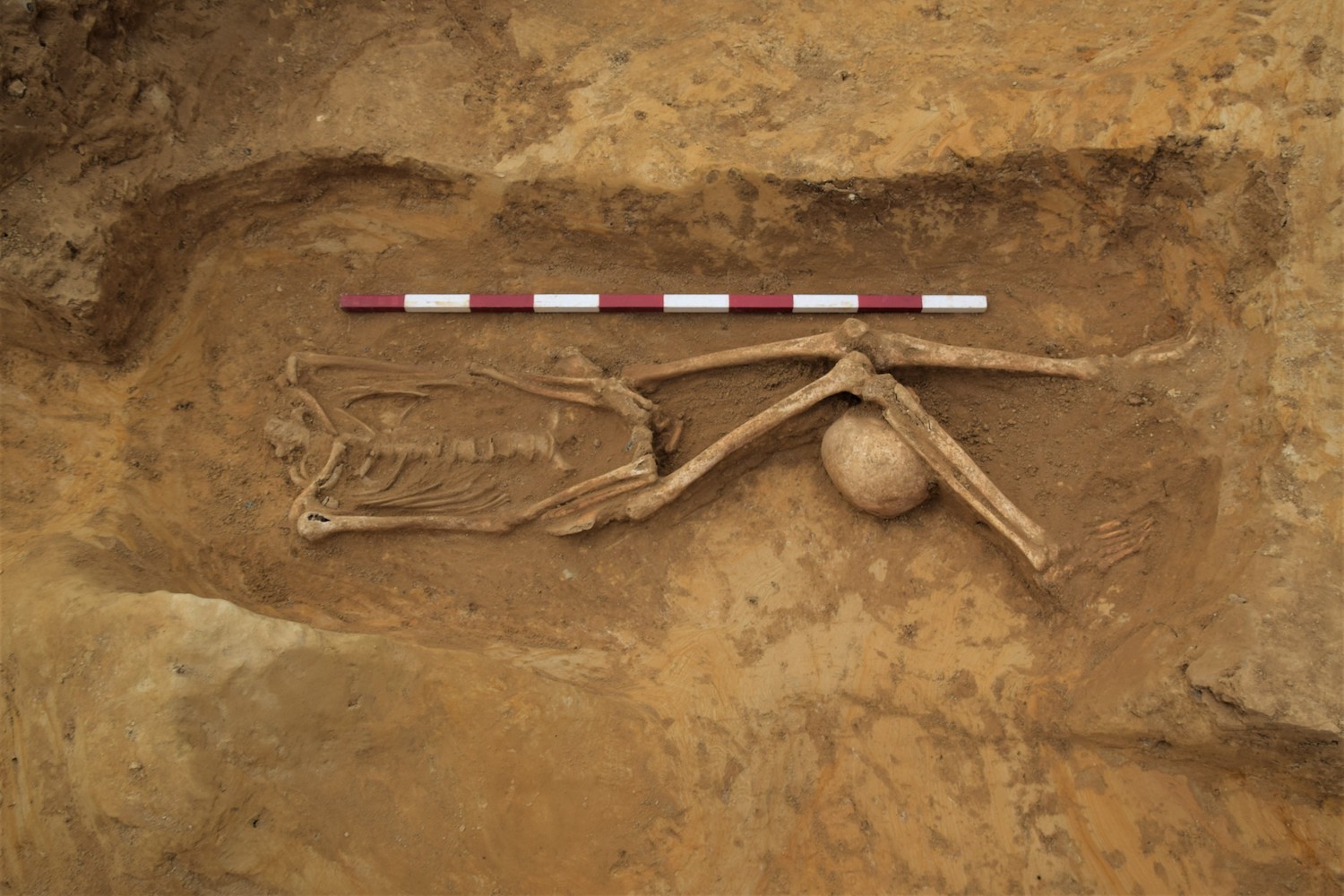
Another decapitated Roman skeleton, which has its head placed under one knee. It's unclear why these bodies were decapitated, but it was likely a funerary rite associated with a particular group within the local population, Peachey said. [Read the full story about the Roman cemetery]

Laura is the managing editor at Live Science. She also runs the archaeology section and the Life's Little Mysteries series. Her work has appeared in The New York Times, Scholastic, Popular Science and Spectrum, a site on autism research. She has won multiple awards from the Society of Professional Journalists and the Washington Newspaper Publishers Association for her reporting at a weekly newspaper near Seattle. Laura holds a bachelor's degree in English literature and psychology from Washington University in St. Louis and a master's degree in science writing from NYU.
 Live Science Plus
Live Science Plus





